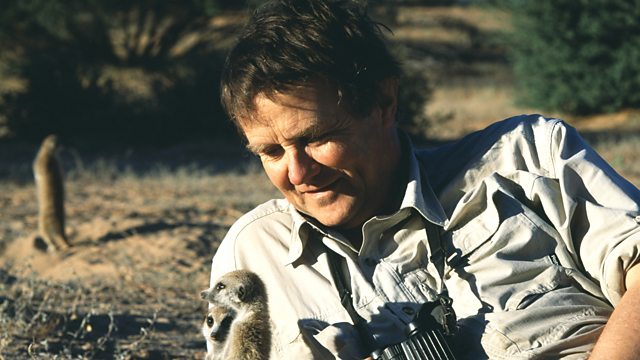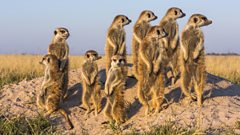Tim Clutton-Brock on meerkats, red deer and evolution
What makes meerkats so cooperative and why do sons cost mothers more than daughters? Zoologist and evolutionary biologist Tim Clutton-Brock explains to Jim Al-Khalili.
The huge popularity of meerkats is in no small part down to Professor Tim Clutton-Brock, zoologist and evolutionary biologist of the University of Cambridge.
‘Meerkat Manor’ and many natural history TV documentaries that have followed the lives of these small appealing mongooses were filmed at the field research centre in South Africa which Tim set up three decades ago.
Colleagues describe Tim Clutton-Brock as one of the giants in the field of animal behaviour and societies, seeking to explain them from an evolutionary and ecological perspective.
He is renowned for his ambitious, long-term studies of populations of animals in the wild. His research follows hundreds of individuals to see how the animals develop and fare over their entire lifetimes and what factors determine their longevity and their success at producing offspring.
Among the numerous species which Tim has studied are red deer on the island of Rum in Scotland and meerkats in the Kalahari Desert in South Africa. From the minutiae of the lives of many individual animals, his aim has been to see the big picture – explanations that provide a logical framework for what we see in Nature.
Professor Clutton-Brock talks to Jim Al-Khalili about his five decades of research; including why sons cost mothers more than daughters, getting close to fighting stags at night, and how to tame a meerkat so she’ll let you ultrasound her belly.
Producer: Andrew Luck-Baker
Last on
Clip
-
![]()
From "The problem's not imminent" to "Run for your life!"
Duration: 02:16
Broadcasts
- Tue 26 Oct 2021 09:00�鶹������ҳ��� Radio 4
- Tue 26 Oct 2021 21:30�鶹������ҳ��� Radio 4
Sleep – the mystery state
Is your mind a machine?
Daniel Dennett thinks so. Here is what we learned from his Life Scientific.
Podcast
-
![]()
The Life Scientific
Professor Jim Al-Khalili talks to leading scientists about their life and work.




